MJHS Hospice Care
What is Hospice Care?
Hospice, also known as comfort care, is for patients who have made the personal decision to no longer pursue curative treatment for an illness. Instead, they have decided to focus on quality of life and time with family and friends.
When is Hospice Care, the Right Care?
The decision to seek hospice care is an important one. If you or a loved one has been diagnosed with a terminal illness, there may come a time when efforts to slow the illness are not working and become more harmful than helpful. If that time comes, you might want to consider the benefits of hospice care.
Deciding the right time is a personal choice. Patients tend to transition to hospice when they have decided to stop curative or aggressive treatments. Hospice focuses on comfort, not curing, with the fundamental principle that each of us has the right to die pain-free and with dignity, and that our families will receive the necessary support to allow us to do so.
The earlier we start working with a patient and their family, the bigger difference that we can make in their quality of life.
Contact Us
Learn More about Hospice Care
Where is Hospice Care Provided?
At Home
Now more than ever, patients and their families want the peace-of-mind that comes from receiving care and support for an advanced illness at home. And MJHS Hospice is here to make that possible. We adhere to all CDC Infection control guidelines and always wear appropriate Personal Protective Equipment (PPE) to ensure the safety of our patients and their loved ones.
If care at home is not an option, we can also provide hospice care in an assisted living community or nursing home. We can also provide an inpatient level of care within the major health systems in the York Area; Mount Sinai, NewYork Presbyterian and Amedisys.
No matter where you receive care, you can count on MJHS Hospice to provide a team of care specialists that patients and families can go to, not only for care, but for answers. We are here to provide the support and care you need.
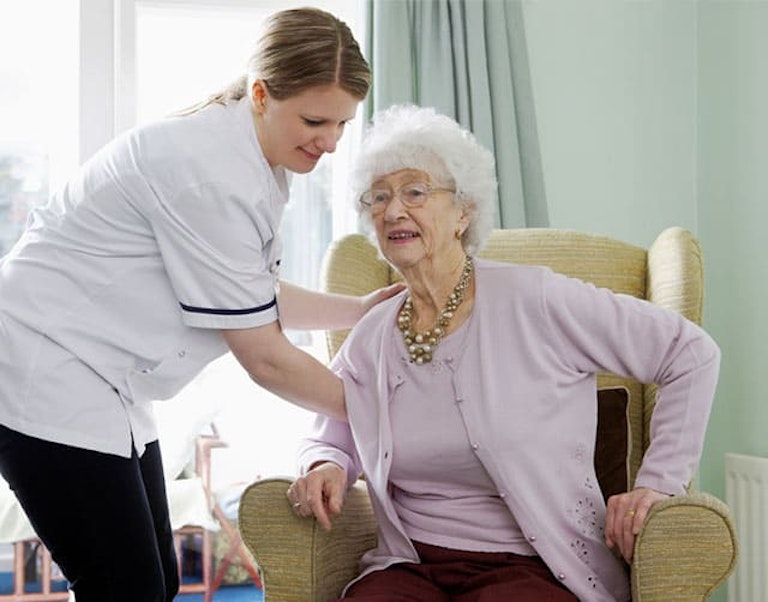
Skilled or Assisted Living Facility
For our patients who are already living in a skilled or assisted living facility, our hospice team can work with the facility to coordinate the best plan of care. Providing hospice care at a skilled or assisted living facility does not take the place of the facility’s existing staff. We supplement the facility’s care and coordinate between doctors, nursing staff, the patient, family and others to ensure you are always comfortable and your needs are being met. For a list of facilities that we can provide hospice care in, click here.

Inpatient Hospice Care
There are some circumstances when the patient’s symptoms cannot be controlled at home and there is a need to have a specialized team provide a General Inpatient Level of Care in an inpatient care facility such as a hospital or nursing home. This setting provides patients with 24/7 support to help stabilize their condition and optimize symptom management. Inpatient facilities can be located within a hospital or dedicated hospice setting. Once your symptoms are under control, you will return to your residence.
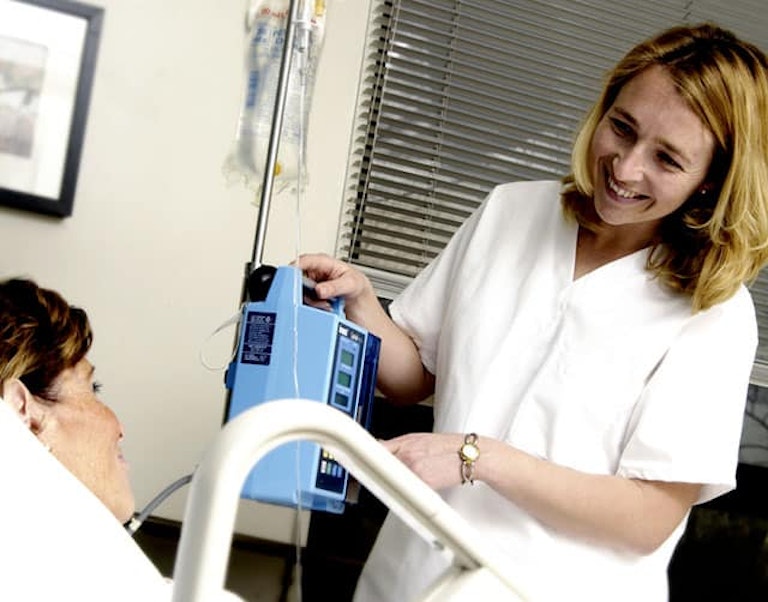
Hospital
Patients who are extremely ill may receive hospice care in a hospital setting. Our hospice team will work with the hospital staff to ensure your comfort. When your condition stabilizes, our hospice team will coordinate with the hospital discharge planner to assure a smooth transition to the appropriate setting.
In order to continue to receive hospice services from MJHS Hospice and Palliative Care, you must be at one of our contracted facilities.
To view a current list of facilities that we contract with near you, click here.
Who is Eligible to Receive Hospice Care Services?
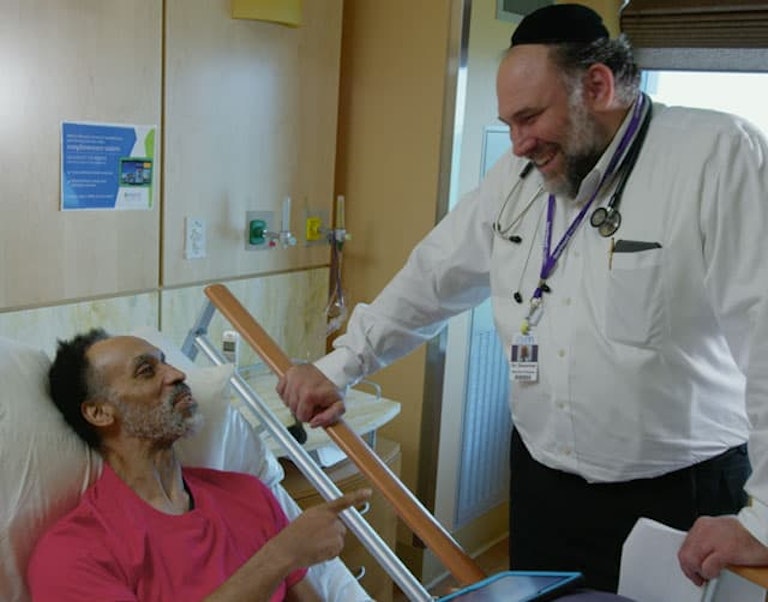
When is the right time to discuss hospice care?
Now is the best time to discuss the options available to you or a loved one through hospice. Although end-of-life care may be difficult to discuss, the best thing you can do for yourself and your loved ones is to plan in advance and share your wishes long before it becomes a concern. This can greatly reduce stress when the time to start receiving hospice services becomes apparent. By having these discussions in advance, uncomfortable situations can be avoided. Instead, educated decisions can be made that include the advice and input of the loved one who’s effected.
Who is eligible to receive hospice services?
Any person, at any age, can receive hospice services.
Medicare Part A sets forth the criteria for the hospice benefit and most other insurers also follow these guidelines. The criteria for hospice eligibility are established by state and federal regulations and require certification by a licensed physician stating that an individual has a “life-limiting” illness. The eligibility requires that the physician certify the patient has six months or less to live if the disease follows its usual course. There are no illnesses or treatments that automatically exclude access to hospice care. Eligibility is established on a case-by-case basis.
Here is a list of common signs that may help you decide if end-of-life care is the right choice for you or a loved one:
- You’ve decided to no longer receive treatments to cure your illness
- A physician has given you a prognosis of six months or less if the illness were to run its normal course
- There are no further treatments available, and you want to focus care on comfort and relieving symptoms
- You have an increase in pain and nausea, as well as breathing difficulties
- There’s been an increase in your number of hospital stays and emergency room visits
MJHS Hospice can help address any questions you may have about eligibility. Just call us at: 212-420-3370
Pediatric Care at MJHS
Care For Your Child At Any Stage Of Illness
If your ill child is under 18, they may be eligible to receive pediatric hospice care. The MJHS pediatric team can provide comfort care for your child at any stage of their illness, even if they are still undergoing curative treatment. We are also here to guide you on what to expect as your child’s illness progresses and offer the support needed to help you and your child maintain the best possible quality of life.
We understand that as a parent, you are forced to juggle many responsibilities and often, there is nobody you can talk to who truly understands your situation and can offer concrete help navigating the clinical and emotional challenges ahead. This is where MJHS can step in.
MJHS, the Care You Need
Our MJHS care team includes highly trained pediatric hospice physicians and nurse practitioners, pediatric nurses, and social workers. All team members have specialized training in treating distressing physical symptoms, such as pain, fatigue, nausea, shortness of breath, and emotional challenges, such as anxiety, depression, spiritual distress, and family difficulties. In addition to the care we can provide, the team can also help connect you to community services that will lend additional support.
To find out more about the MJHS Pediatric Hospice program or request care, please call (212) 420-3370 or Contact MJHS.
Customized Hospice Care Plan
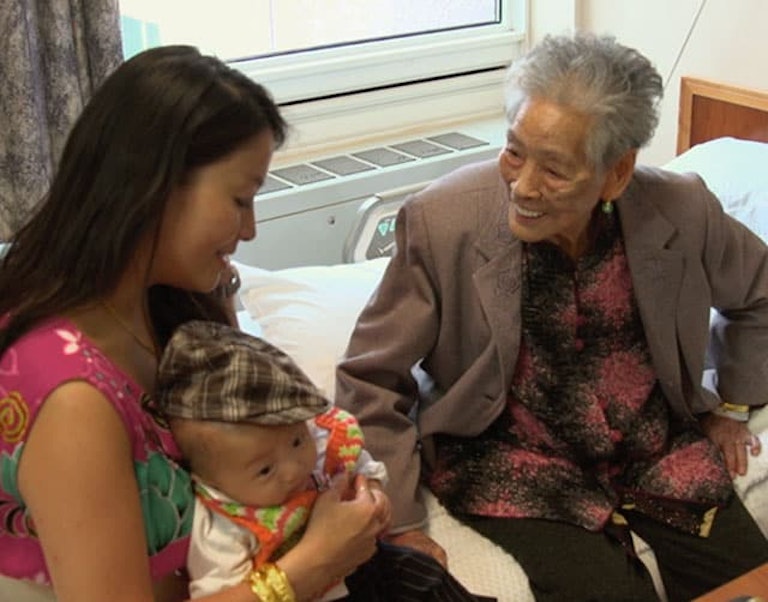
The hospice plan of care is a guide to providing you with the care you want and need. It is developed in collaboration with you, the interdisciplinary care team, your physician, and family members. As part of this plan, the team will determine the frequency of home visits, services and level of care needed.
Some of these may include:
- Visits by members of the interdisciplinary team: Hospice physician, registered nurse, social worker, spiritual care support, creative arts therapist, home health aide and volunteers.
- Medical and nursing management of the physical symptoms of your illness.
- Emotional and spiritual support / counseling for you and primary caregiver(s).
- Medications, medical equipment including oxygen, supplies and durable medical equipment.
- Physical therapy, occupational therapy, respiratory therapy, speech language pathology, dietary counseling, and laboratory services, as appropriate and with hospice physician approval.
Levels of Hospice Care
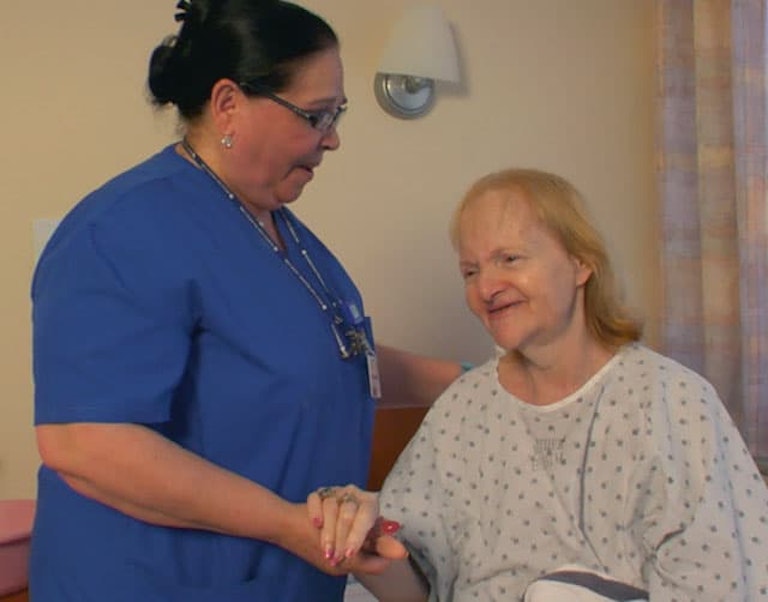
There are four levels of hospice care available. Your level of care will depend on your needs and may change over the course of your treatment:
Routine Home Care—This care is provided in the comfort of your own home…whether it is a private residence, assisted living facility or skilled nursing facility.
General Inpatient Care—General inpatient level of care is for short-term acute episodes. It is initiated when other efforts to manage symptoms are ineffective. This level of care is provided in a hospital or skilled nursing facility, and is for the treatment of uncontrolled symptoms and pain that cannot be managed in any other setting.
Continuous Care (a.k.a Crisis Care)—This level of care is time-limited and offered only during a symptom crisis. Skilled nursing care is provided in your residence for at least 8 hours a day and may be provided for up to 24 hours, with the goal of treating your uncontrolled symptoms.
Respite Care—This short-term care is provided in a skilled nursing facility. It is recommended when your caregiver is unable to provide care for reasons of travel, illness or caregiver fatigue.
Your Care Team
You will be cared for by an interdisciplinary team of highly trained medical and clinical professionals. They will work together with you, your family and your physician to develop a plan of care that provides comprehensive and compassionate care to help ease complex symptoms so you can feel confident about living each day to the fullest.

Members of Your Interdisciplinary Team
The Hospice Physician provides medical guidance for your interdisciplinary care team and participates in care planning. They may make home visits as needed, and upon request can assume the role of primary care physician.
Your RN case manager coordinates all aspects of your care, working closely with you and all other members of your care team. They will evaluate your physical needs and work with you and your physician to implement all necessary and covered services to meet those needs. Our RNs provide expert teaching in skilled procedures to help caregivers feel confident in their ability to care for you at home.
Your social worker offers emotional support through counseling one-on-one or in groups. They can also help you navigate personal, social and financial matters and are available to assist patients and families with advance care planning.
A Home Health Aide (HHA) will provide personal care such as bathing, dressing and meals.
A minister / chaplain / rabbi will provide emotional and spiritual support to families of all faiths through visits, prayer and counseling.
Volunteers can provide support through companionship and respite for caregivers. All volunteers complete a specialized training program.
Depending on your care needs, a physical, occupational or speech therapist may provide additional specialized care for optimal function and safety.
Supportive and Specialty Care Programs
Our deep understanding of different cultures allows us to tailor a plan of care for every patient and family. In addition to your interdisciplinary care team, we can also provide a wide range of supportive and specialty care services based on your needs.
Many of our support and specialty care programs are not covered by insurance but we provide them because of the difference they make in the lives of our patients. To support the continuation of these programs, visit MJHS Foundation.
Support and Care
In addition to the care included in your hospice benefit, we also provide additional support designed to assist with patients’ and their families’ physical, social, spiritual and emotional needs. Many of these services are not covered by insurance and are made possible by donations to our Foundation. We make an effort to provide them whenever possible because we know the difference they make in the lives of our patients and families. Some of these additional services include;

Creative Arts Therapy
Visual art, music, and literature color the world we live in. Enjoying the arts provides a creative outlet to express emotions, and engage with others, even as the patient’s condition progresses.
Ethics Review Committee
We recognize that sometimes care recommendations may cause families to have conflicting feelings based on their values and beliefs, so we want to provide families with resources to work through those feelings in a productive environment. Through the Ethics Review Committee, families receive extra support in understanding the different approaches to caring and how these choices fit with family values and beliefs.
At MJHS, the death of a loved one does not end our concern for your family or those individuals closest. After a family member or loved one passes, our Bereavement team is there to provide education and support at no cost for 13 months after the death of a loved one.
We recognize that grief and loss can impact lives long after a loved one has died. Our Creative Arts Therapy Program also employs specially trained and licensed music and art therapists to address the unique needs of children, adolescents and adults confronting loss.
Specialty Care
We understand that each family has its own special needs and sensitivities depending on their past experiences, family structure or religious beliefs. It is our responsibility to understand and recognize how these factors influence a patient’s behaviors and preferences and how they impact decisions regarding their care. Through continuous education, training and partnership with community organizations, we have developed standards of care that help address our patients’ sensitivities, beliefs and preferences.
Some of these include:
At MJHS, We Honor Veterans
MJHS Hospice is proud to be recognized by the Department of Veterans Affairs and the National Hospice and Palliative Care Organization (NHPCO) as the first We Honor Veterans Level 5 Partner in the NY Metropolitan area and serves as a WHV mentor to other hospices.
We consider it a privilege to care for veterans who served in the military to defend the freedom of others. Our care centers on providing respectful inquiry, compassionate listening and grateful acknowledgment. Our staff is educated explicitly in delivering person-centered, trauma-informed care with an understanding of the military culture.
Our veteran patients and their families will have access to a dedicated Veteran Liaison who will support their needs and assist with accessing Veteran benefits and entitlements. For more information, download our Veteran Benefits and Resources for Hospice and Palliative Care Patients.
LGBTQ+ Sensitive Care
Aims to create an affirming and welcoming environment for patients and families through education and advocacy. With partnership and education from SAGECare we hope to continue to set industry standards and best practices for the LGBTQ+ community.
MJHS holds a Platinum Level Credential with SAGECare in LGBTQ Aging Cultural Competency
Jewish Program
Provides care for all Jewish patients in accordance with their spiritual values and religious beliefs. Some components of the program include:
- Holocaust Survivor Care — provides respectful person-centered, trauma-informed care to Holocaust Survivors and their families from staff who are educated in and sensitive to the Holocaust history, its lifelong impact and how it may affect the end-of-life experience.
- Assistance with funeral planning and coordination with the Chevra Kadisha can be provided in order to facilitate burial within 24 hours.
- Halachic Pathway – assures Jewish patients and families that their designated rabbinic advisor (or Posek) will be included in the medical decision-making process. When requested, assistance with suggesting appropriate rabbinic advisors can be provided.
- Cultural and spiritual practices and traditions are marked by MJHS’s Rabbinic Pastoral Care Providers in honor of the Sabbath and Jewish holidays.
- Assistance with the recitation of Kaddish (mourner’s prayer) can be facilitated.
Planning in Advance
Sometimes, because of illness or injury, people are unable to talk to a doctor and decide about treatment for themselves. You may wish to plan in advance and fill out advance directives to ensure that your wishes about treatment will be followed if you become unable to decide for yourself. In New York State, appointing someone you trust to decide about treatment if you become unable to decide for yourself is the best way to protect your treatment wishes and concerns
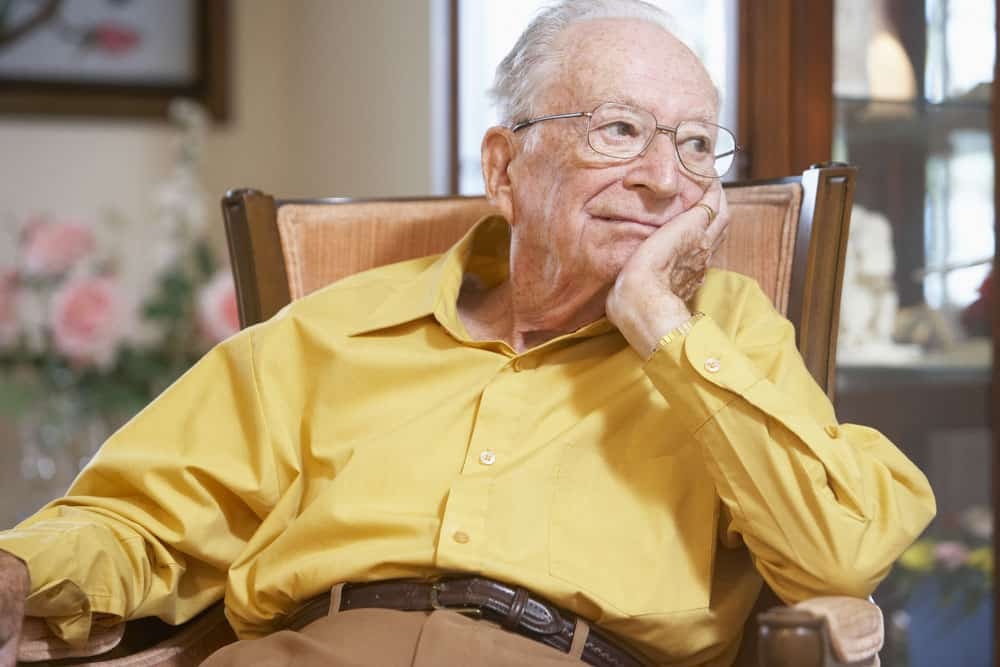
As a Patient You Have the Right To:
Make Decisions about Treatment Adults in New York State have the right to accept or refuse medical treatment, including life-sustaining treatment. Our constitution and state laws protect this right. This means that you have the right to request or consent to treatment, to refuse treatment before it has started and to have treatment stopped once it has begun.
Decide about Cardiopulmonary Resuscitation and Do-Not-Resuscitate (DNR) Your right to decide about treatment includes the right to decide about cardiopulmonary resuscitation (CPR). CPR is emergency treatment to restart the heart and lungs when your breathing or circulation stops. Sometimes doctors and patients decide in advance that CPR should not be provided, and the doctor gives the medical staff an order not to resuscitate (DNR order). If your physical or mental condition prevents you from deciding about CPR, someone you appoint can decide.
Decide About Do Not Intubate (DNI) Do not intubate (DNI) means that no breathing tube will be placed in the throat in the event of breathing difficulties or respiratory arrest. If you stop breathing, you will not be placed on an artificial breathing machine, and the insertion of a tube or mechanical ventilation will not be initiated. The DNI order can be a separate advance directive from the DNR order, but in most cases they are ordered together.
Self-Determination is the Right to Participate in Your Own Health Care Decision Making
Advance directives are written documents that assist you in communicating your wishes regarding your medical care if you become physically or mentally unable to communicate due to an accident or illness. Many types of advance directive documents exist. Below are examples of four advance directive documents:
- A health care proxy is a written document that allows you to choose a designated person to make medical decisions on your behalf when your doctor determines you are unable to do so for yourself.
- A living will is a document that contains your health care wishes and is addressed to unnamed family, friends, hospitals and other health care facilities. It allows you to express your health care wishes in the event your doctor determines you are no longer able to make medical decisions for yourself.
- A do-not-resuscitate (DNR) order is a written document that tells medical professionals to not perform CPR if your breathing or heartbeat stops. Doctors issue DNR orders.
- Halachic pathway assures that a patient’s family and chosen rabbinic advisor, or Posek, can be included in the medical decision-making process.
Hospice care can only start when your doctor has referred you.
Once you have decided to stop curative treatment for your illness, let your doctor know that you are interested in the benefits of hospice care, and they will begin the certification process.
Important Things to Know About Hospice Care
- You do not have to give up your personal physician. The hospice care team will work with you and your personal doctor to develop your care plan.
- You can stop receiving hospice care at any time. For example, if the prognosis improves or a new curative treatment becomes available, care can be discontinued and started again at a later date (provided the physician certifies that you are still eligible)
- Although eligibility for hospice care requires a life-limiting illness, there is no limit on the number of days a patient can receive it. As long as the patient’s primary care and hospice physician say the patient is eligible, the patient can continue receiving services.
- Hospice is not a place. It is a level of care that can be provided in the comfort of a home, an assisted living community, a nursing home or an inpatient residence.
- The benefits of hospice care extend to the family. It provides bereavement support and guidance on how to prepare and cope with a death.
For more information or to start hospice care, call our Access Center at 212-420-3370.
Who Pays for Hospice Care?
Hospice is covered by Medicare, Medicaid, managed care (including HMOs), and most private insurances. At the time of referral, our access coordinators will assist you in verifying your insurance benefits and answering any questions you may have about our services. Grants, donations, and fundraising activities from our own MJHS Foundation can help to provide care to some of our patients regardless of their ability to pay.
If You Are a Physician
and would like to request a hospice evaluation for your patient, we are happy to assist. You can call us at 212-420-3370 or fill out our form and we will be in touch right away.

